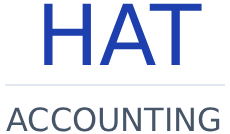Tax season can be stressful, especially for dental practice owners juggling patient care and financial management. However, with careful planning and organization, preparing for tax season doesn’t have to be overwhelming. In this step-by-step guide, we’ll show you how to get your dental practice ready for tax season and minimize your tax liability.
1. Organize Your Financial Records
The first step in tax preparation is ensuring that all your financial records are in order. This includes income statements, receipts, payroll records, and expense logs. Implement an efficient record-keeping system throughout the year so that you’re not scrambling at the last minute.
2. Review Deductible Expenses
As a dental practice owner, there are several business expenses you can deduct from your taxable income, including equipment, office supplies, professional development, and employee wages. Review your expenses for the year and make sure you’re claiming all eligible deductions to reduce your taxable income.
3. Set Aside Funds for Taxes
It’s important to set aside money throughout the year to cover your tax liability. Many dentists make the mistake of waiting until the last minute to think about taxes, which can lead to cash flow problems. Use accounting software or hire an accountant to calculate estimated taxes so you can prepare in advance.
4. Consult with a Tax Professional
Tax laws are constantly changing, and a tax professional can help you navigate the complex tax landscape. They can also advise you on tax-saving strategies specific to your dental practice, ensuring you maximize deductions and minimize liabilities.
5. Plan for Future Tax Years
Tax preparation should be a year-round activity. As tax season approaches, assess your practice’s financial strategy and consider making changes to improve your tax position in the future. For example, setting up retirement accounts for yourself and your staff can help you take advantage of tax-deferred contributions.
Conclusion
Preparing for tax season doesn’t have to be overwhelming if you stay organized and plan ahead. By reviewing your expenses, setting aside funds, and consulting with a tax professional, you can ensure a smooth tax season and potentially reduce your tax burden.





